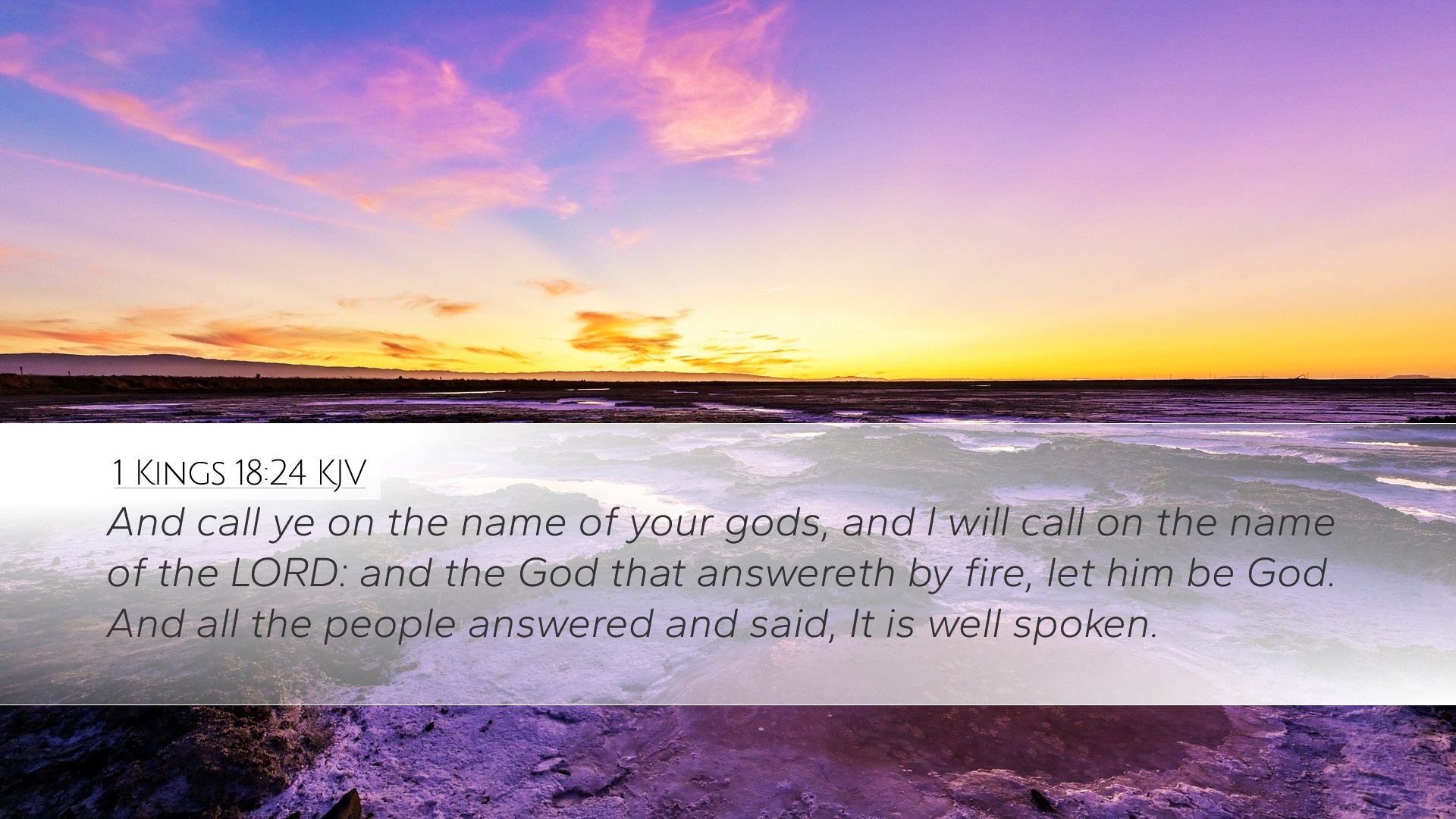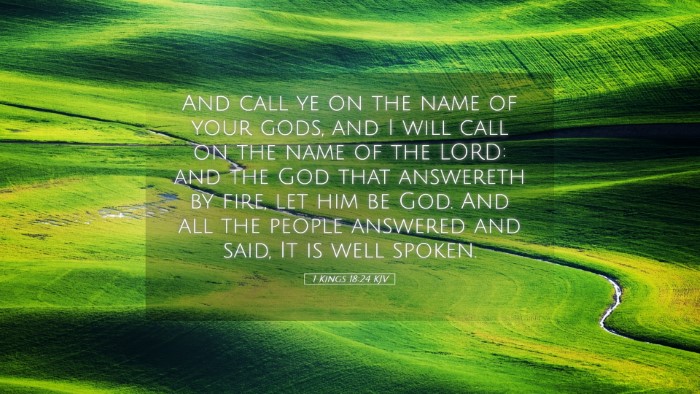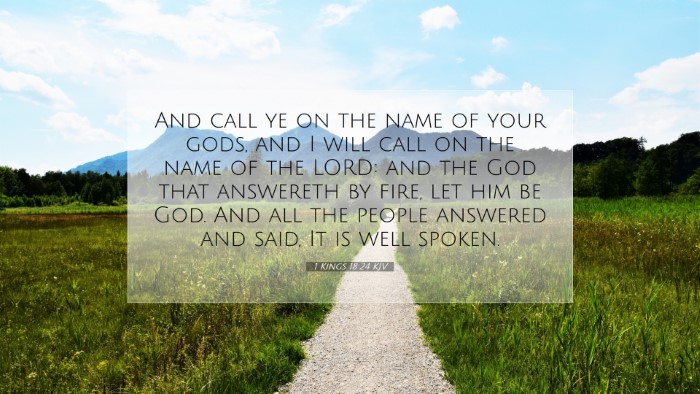Commentary on 1 Kings 18:24
Bible Verse: "And call ye on the name of your gods, and I will call on the name of the Lord: and the God that answereth by fire, let him be God. And all the people answered and said, It is well spoken."
Contextual Overview
The verse is situated within the narrative of Elijah's confrontation with the prophets of Baal on Mount Carmel. This episode is crucial in the history of Israel as it represents a pivotal moment in the struggle between the worship of Yahweh and that of Baal, a common deity worshiped in the ancient Near East.
Summary of Key Insights
- Challenge of Divinity: Elijah proposes a contest to demonstrate the true power of God versus the impotent nature of Baal. This challenge is significant as it encapsulates the fundamental question of who is the true God amidst the polytheistic practices of the Israelites.
- Faith and Boldness of Elijah: Elijah's readiness to call upon the name of the Lord amidst a hostile crowd exemplifies his unwavering faith. His declaration reflects a profound confidence in the sovereignty and omnipotence of God.
- The Response of the People: The collective response of the people, "It is well spoken," indicates their readiness to witness the power of God. This reflects a moment of unity among the people, albeit misplaced, as they had been swayed by the influences of Baal worship.
Detailed Commentary
1. The Public Contest
Albert Barnes comments on the significance of the direct confrontation laid out by Elijah. He emphasizes that the public nature of the contest served to discredit the false prophets in the presence of the community, thereby restoring faith among the Israelites in the true God. The challenge was set not just to appease the Israelite population but also to publicly declare God's supremacy over Baal.
2. Invocation of Divine Presence
Matthew Henry provides insights into the nature of calling upon God. He notes that Elijah's challenge to the prophets of Baal serves as an affirmation of God's involvement in the earthly realm. The statement "the God that answereth by fire" highlights God's active presence and willingness to reveal Himself through powerful means. This symbolizes the desire for a tangible manifestation of divine approval.
3. The Nature of the Challenge
Adam Clarke elaborates on the specific rituals and practices associated with calling upon Baal. He suggests that the prophets were accustomed to rituals that included fervent shouting and self-mutilation, yet Elijah’s simple appeal to the sovereign God underscores the futility of such methods. Clarke views this as a critique of the excessive and often frenzied practices associated with pagan worship.
4. Theological Implications
This verse raises critical theological questions regarding the nature of prayer and divine response. The challenge presented by Elijah compels both the prophets of Baal and the watching crowd to confront their beliefs. The stark separation between the nature of the true God and the powerlessness of idols is brought to the forefront, serving as a powerful reminder of the call to genuine faith.
Applications for Today
- Faith in Action: Pastors and theologians can draw from Elijah's example to emphasize the importance of unwavering faith in today's church, especially in contexts where secularism and false beliefs threaten to overshadow the truth of God’s Word.
- Public Witness: The public nature of Elijah’s challenge serves as an encouragement for contemporary believers to openly witness their faith. In a world filled with competing ideologies, Christians are called to affirm their belief in God through visible and courageous actions.
- Divine Sovereignty: The confrontation serves as a reminder of God’s ultimate authority. It invites pastors and teachers to convey the importance of recognizing God’s sovereignty in the lives of believers and in the affairs of nations.
Conclusion
The challenge posed by Elijah in 1 Kings 18:24 remains a pivotal lesson regarding faith, authenticity, and the confrontation of competing beliefs. Through careful examination of this verse, as illuminated by public domain commentaries, we are reminded of the necessity for clarity in our worship and the call to champion the truth of God's supreme power among the distractions of modern beliefs.


